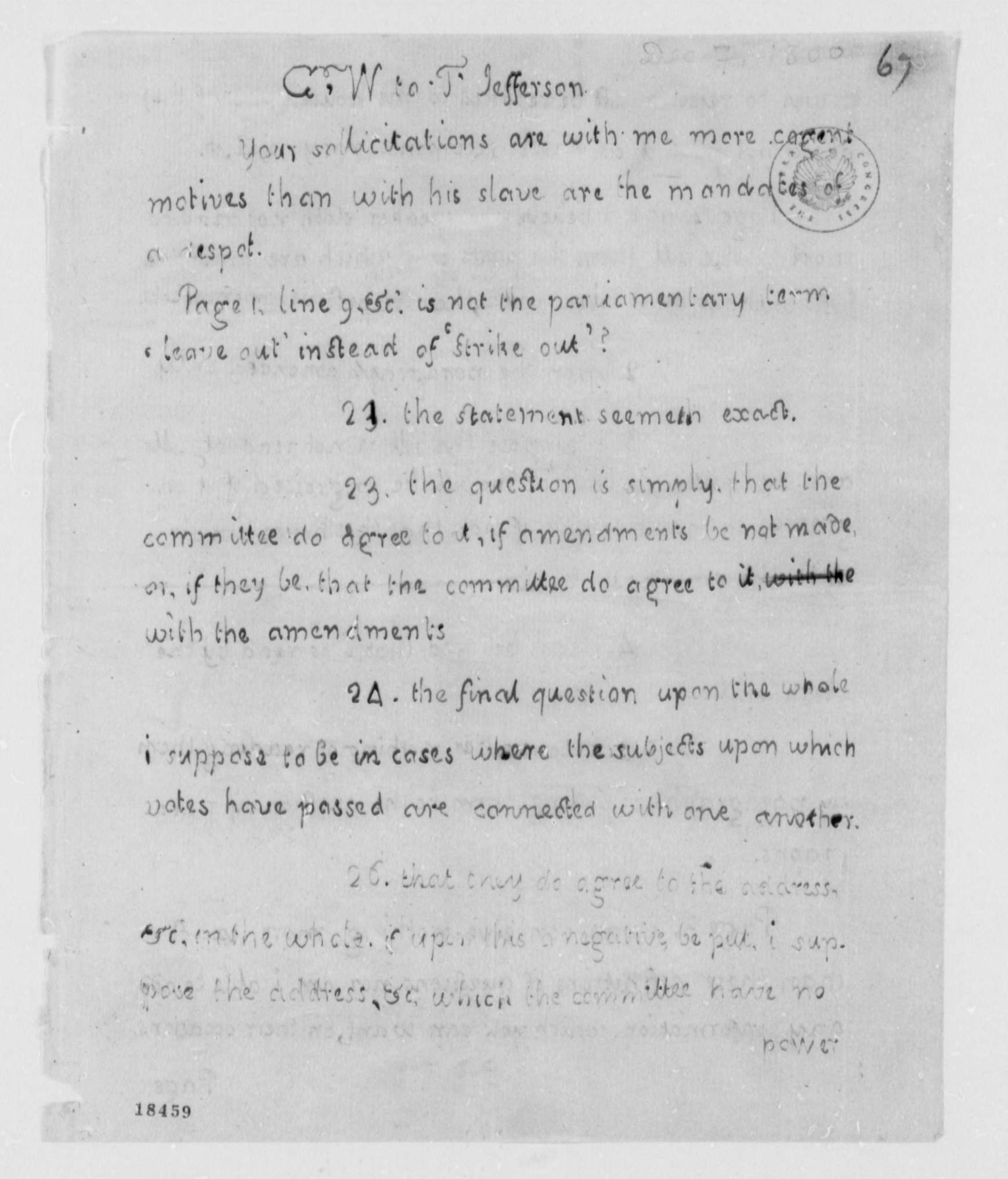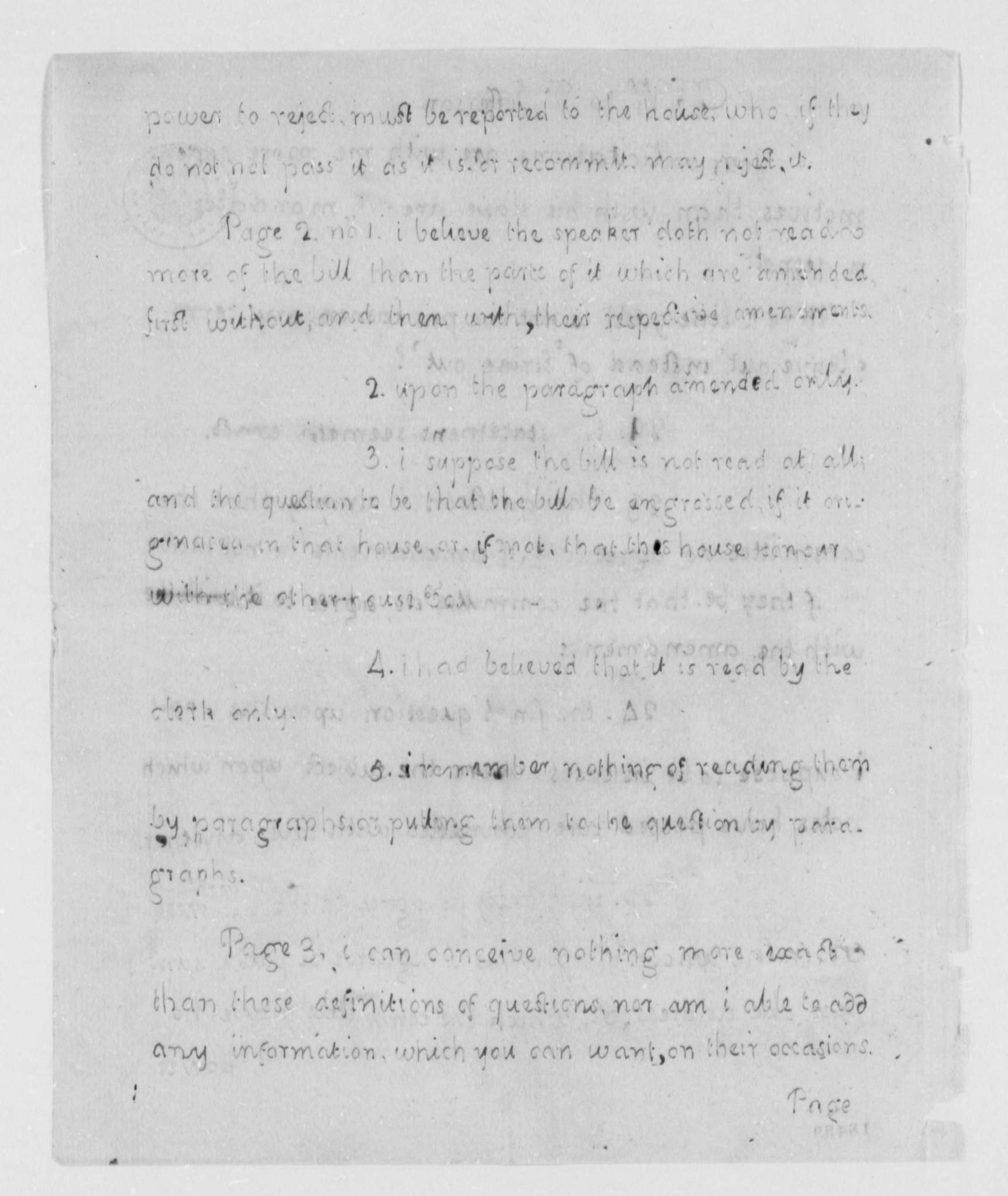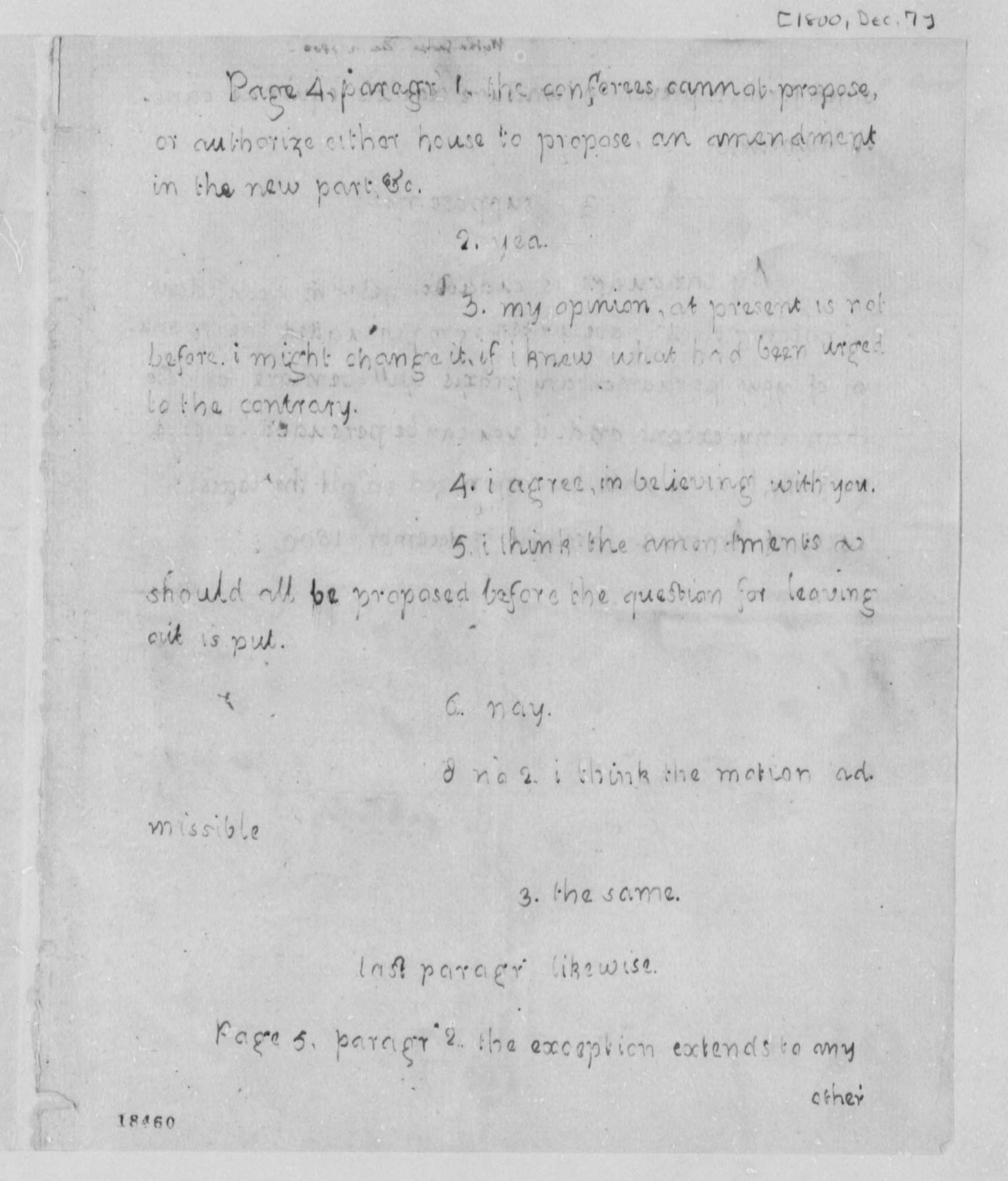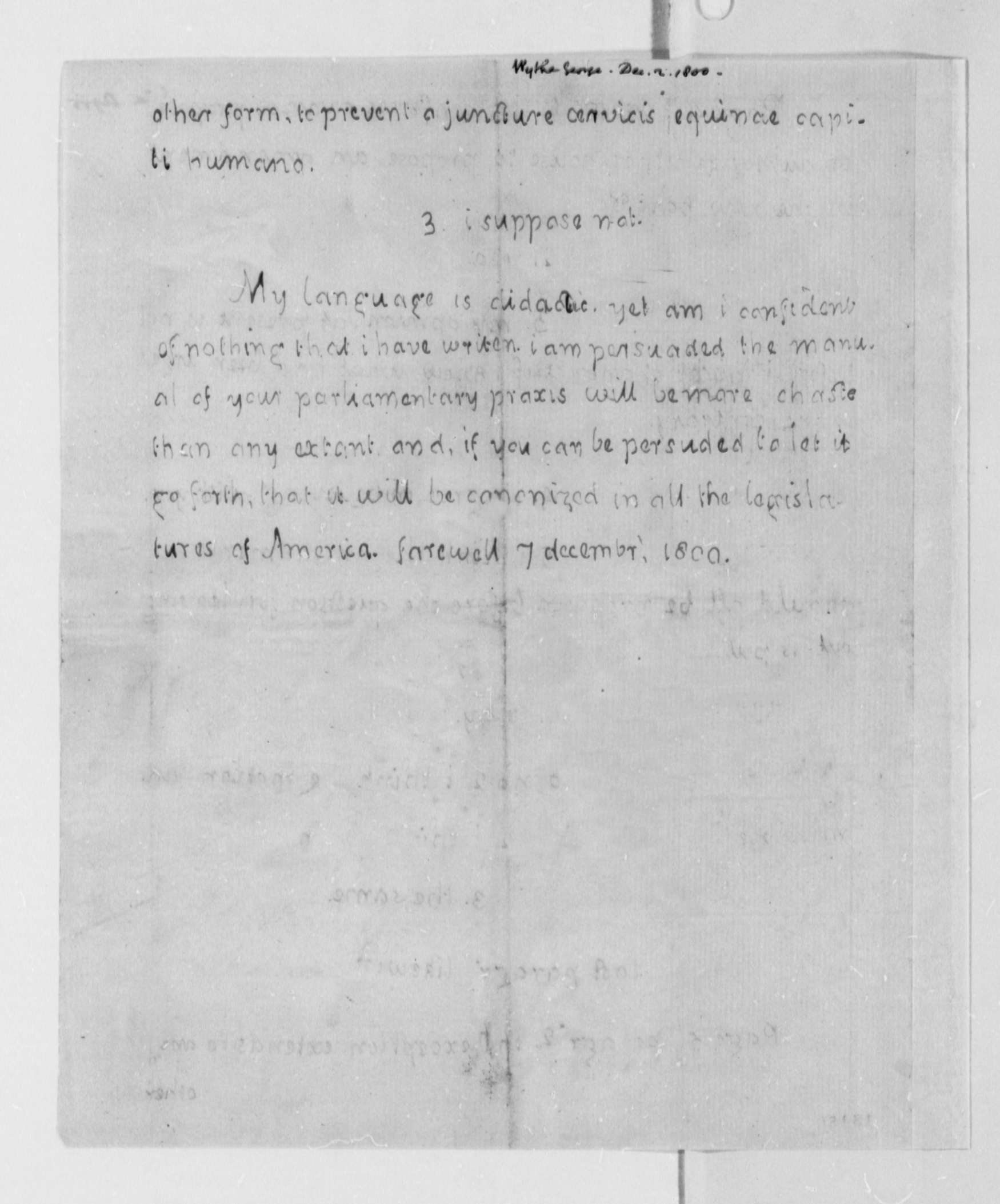Wythe to Thomas Jefferson, 7 December 1800
Note: The following letter is Wythe's direct answers to Jefferson's questions regarding parliamentary procedure. Jefferson posed these questions in a letter dated April 7, 1800.
Page 1

"Wythe to Thomas Jefferson, 8 December 1800, pg 1." Image from the Library of Congress, The Thomas Jefferson Papers.
G.W. to T. Jefferson
Your solicitations are with me more cogent motives than with his slave are the mandates of a despot.
Page 1, line g.&c. is not the parliamentary term ‘leave out’ instead of ‘strike out’?
21. the statement seemeth exact.
23. the question is simply that the committee do agree to it, if amendments be not made or, if they be, that the committee do agree to it, with the with the amendments.
24. the final question upon the whole i suppose to be in cases where the subjects upon which votes have passed are connected with one another.
26. that they do agree to the address, &c, in the whole, if upon this a negative be put, i suppose the address, &c, which the committee have no power
Page 2

"Wythe to Thomas Jefferson, 8 December 1800, pg 2." Image from the Library of Congress, The Thomas Jefferson Papers.
power to reject, must be reported to the house, who if they do not not pass it as it is, for recommit, may reject it.
Page 2. no 1 i believe the speaker doth not read more of the bill than the parts of it which are amended, first without, and then with, their respective amendments.
2. upon the paragraph amended only.
3. i suppose the bill is not read at all; and the question to be that the bill be engrossed, if it originated in that house, or, if not, that this house concur with the other house &c.
4. i had believed that it is read by the clerk only.
5. i remember nothing of reading them by paragraphs, or putting them to the question by paragraphs.
Page 3, i can conceive nothing more exact than these definitions of questions, nor am i able to add any information, which you can want, on their occasions.
Page 3

"Wythe to Thomas Jefferson, 8 December 1800, pg 3." Image from the Library of Congress, The Thomas Jefferson Papers.
Page 4, paragr. 1. the conferees cannot propose, or authorize either house to propose, an amendment in the new part, &c.
2. yea.
3. my opinion, at present is not before. i might change it, if i knew what had been urged to the contrary.
4. i agree, in believing with you.
5. i think the amendments should all be proposed before the question for leaving out is put.
6. nay.
8. no. 2. I think the motion admissible.
3. the same.
Last paragr. likewise.
Page 5. paragr 2. the exception extends to any other
Page 4

"Wythe to Thomas Jefferson, 8 December 1800, pg 4." Image from the Library of Congress, The Thomas Jefferson Papers.
other form, to prevent a juncture cervicis equinae capiti humano.
3. i suppose not.
My language is didactic. yet am i confident of nothing that i have writen. i am persuaded the manual of your parliamentary praxis will be more chaste than any extant and, if you can be persuded to let it go forth, that we will be canonized in all the legislatures of America. farewell 7 decembr’, 1800.